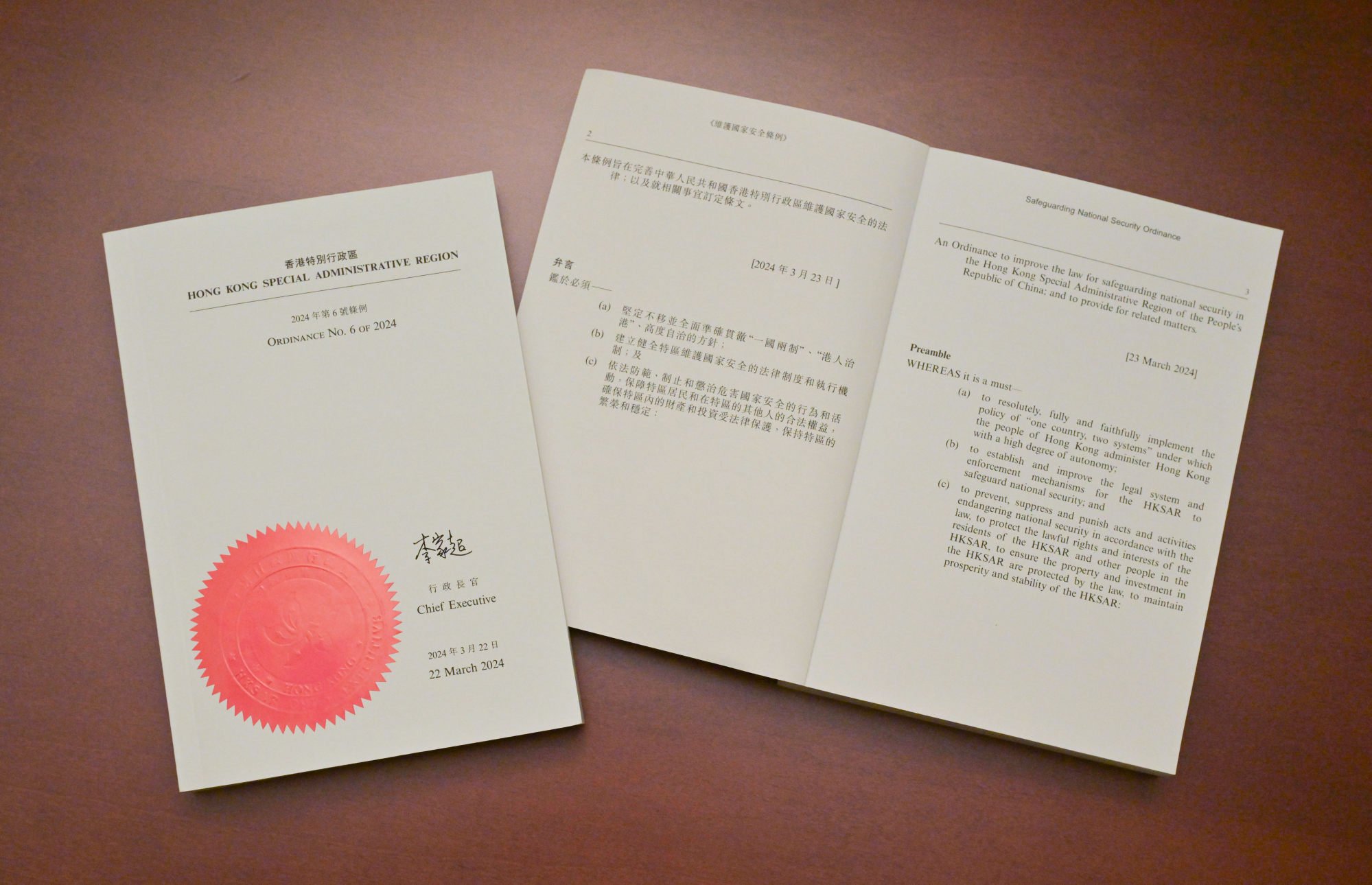Former Hong Kong police commissioner tells young people to study history to appreciate need for national security
“Youths may not understand why we emphasise national security when our country is safe and stable.
“But they don’t know our country had experienced very, very turbulent times.”

He was speaking at at an event for members of Junior Police Call, the force’s programme for young people, designed to promote national security.
Lee, 73, appealed to young Hongkongers to visit the mainland to experience the country’s development and to better understand the need for national security.
He served in the force for 34 years and was well-known for playing Beethoven’s 5th Symphony over a PA system to drown out protests during the ceremony to mark Hong Kong’s return to Chinese rule by Britain in 1997.
Lee said the experience of being in charge of security for the event made him feel honoured and nervous.
“It was a historic moment in both Chinese and world history,” he said. “At the strike of midnight, the British flag was lowered and the Chinese flag was raised.
“I felt very proud as a Chinese citizen living on our own land.”
Lee was also commended for his handling of the World Trade Organization Ministerial Conference held in Hong Kong in 2005, where Korean farmers who staged a protest were subdued with the minimum of force.
Hong Kong pupils to hear about Xi’s security focus, Article 23 on awareness day
Secretary for Security Chris Tang Ping-keung, the security secretary and also a former police officer, said at the same event that the “black violence” in 2019 left a deep impression on him.
He said that many young people were “brainwashed” into committing acts of violence.
“Many officers were smeared and attacked during the protests,” he added.
An officer who was attacked with corrosive liquid has undergone multiple surgeries and still suffers from pain.”
But he added that he had spoken to some of those who were jailed for their part in the protests and that many regretted their actions.
“I hope we can strengthen the sense of national identity in our youths so they will not be incited to commit such acts easily,” Tang said.
Tsang added that the scouts had a long history of instilling leadership and civic responsibility.
‘Totally different’ Hong Kong political climate aided passing of Article 23 bill
The association has held a series of national security education activities in the past few months designed to promote the need to safeguard national security.
Tsang said the programme would strengthen scouts’ feeling for the country and cultivate patriotism and love of Hong Kong.
“By incorporating national security education into their activities, they are instilling in young scouts a sense of duty towards their country and the importance of safeguarding its security,” Tsang said.
The events on Sunday were held two weeks after Hong Kong lawmakers unanimously passed the domestic national security act, an obligation under Article 23 of the Basic Law, the city’s mini-constitution.
An attempt to get the legislation on the statute books more than two decades ago was shelved by mass protests.
The new Safeguarding National Security Ordinance covers 39 offences divided into five categories: treason; insurrection, incitement to mutiny and disaffection, and acts with seditious intention; sabotage; external interference; and theft of state secrets and espionage.
The new legislation was designed to work alongside the Beijing-imposed 2020 national security law, which outlawed secession, subversion, foreign collusion and terrorism.